THE FOUR NOBLE TRUTHS ~ THE FOURTH NOBLE TRUTH
The Noble Truth of the Way
Leading to the Cessation of Suffering (dukkha-nirodha-gamini patipada)
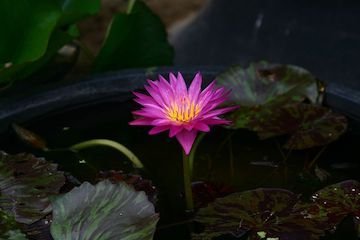
The four noble truths in Buddhism are at the core of the Buddha’s teachings. It encompasses the truth about why we suffer and what it is, what causes this suffering and where it originates from, that there is a way to get rid of the suffering and it’s causes, and that there is a noble way of practices to be followed that will lead to the cessation of suffering and to a taintless way of being that is no longer bound to the suffering way of life and becoming.
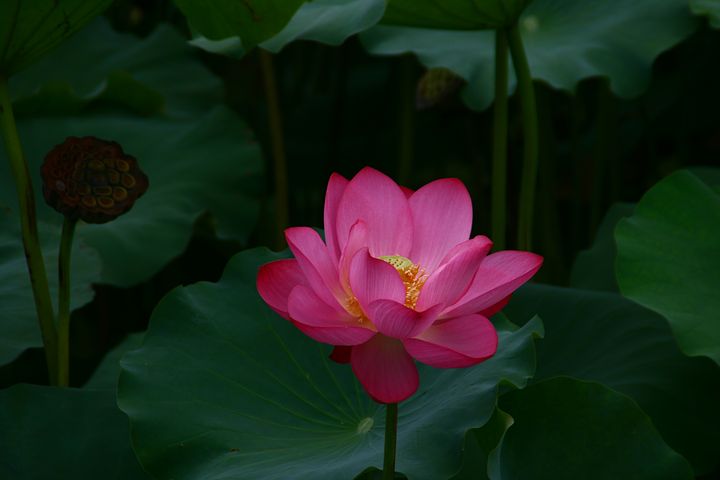
After understanding suffering, the cause of suffering, and the cessation of suffering discussed in parts 1, 2, and 3, the next step is to figure out what the path leading to the ending of suffering is about:
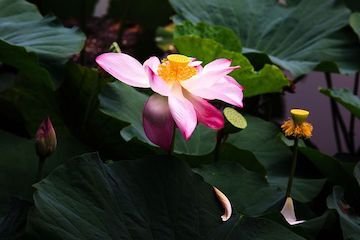
The Fourth Noble Truth points to the Noble Eight-fold Path as the way to work on, applying discipline to one’s actions and the development of wisdom for the mind. Wisdom here means insight into the true reality of things and the understanding of the steps of the Noble Eight-fold Path:
“And what is the way leading to the cessation of suffering?
It is just this ; his Noble Eightfold Path; that is, right view, right intention, right speech, right action, right livelihood, right effort, right mindfulness, and right concentration.
This is called the way leading to the cessation of suffering.” — MN I.49
For a detailed examination of the Noble Eight-fold Path, check out the series: The Eightfold Noble Path

The Four Noble Truths are considered un-refuted in the teachings, meaning that they stood the test of time through debate and reasoning with other teachers:
“When it was said: ‘“These are the four noble truths”: this, monks, is the Dhamma taught by me that is un-refuted . . . uncensured by wise ascetics and brahmins,’ for what reason was this said?

Now it is for one who feels that I proclaim: ‘This is suffering,’ and ‘This is the origin of suffering,’ and ‘This is the cessation of suffering,’ and ‘This is the way leading to the cessation of suffering.’” — AN I.175
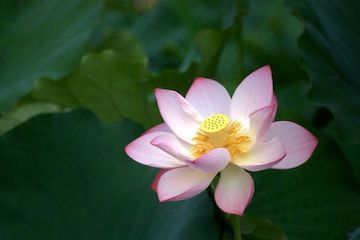
The goal in the end is not to only deal with suffering in this life time, but to not come back to any state of being [becoming] in a next life:
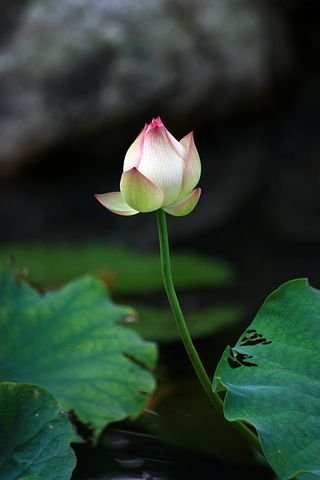
When it is liberated there comes the knowledge: ‘[It’s] liberated.’
He understands: ‘Destroyed is birth, the spiritual life has been lived, what had to be done has been done, there is no more coming back to any state of being.’” — AN I.165
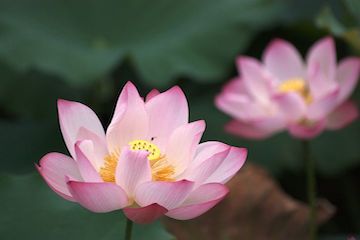
Learning the Four Noble Truths is not only for one’s own sake, it is also to encourage others to learn them. To learn for one’s own welfare as well as for the welfare of others:
“Monks, possessing five qualities, a monk is practicing both for his own welfare and for the welfare of others. What five?

Possessing these five qualities, a bhikkhu is practicing both for his own welfare and for the welfare of others.” — AN III.14
To know the Four Noble Truths is the first step, to see it, attain it, realize, and truly penetrate the realization of it are the follow up steps:
“But, friend, what is it that one has not known, seen, attained, realized, and penetrated?”

In the next part we’ll be discussing the Four Noble Truths in conjunction with the things to develop and the things to avoid in practice.

I will flag comment spam at 1% strength. If you keep on spamming my post, I will flag you at 100%. I don't care if you have limited English abilities, write a couple of sentences about this article, no copy-paste, please. I will flag: one sentence comments, links to your blog and begging for up-votes and follows. Also, I will flag comments that have nothing to do with my blog's article. I will also check your comment section to see if you have been comment spamming on other blogs.


 A link to My Blog
A link to My Blog
We have a lot of things to learn about buddhism because it teach how to control your emotions and feelings about life, great know this kind of content from an excellent teacher as you dear red, have a nice day. Regards
Thank you @dim753, in the beginning it is about controlling the emotions but with practice and patience the emotions become softer and finally become too weak to control us. My teacher told me not to feed them with attention at retreat....It's not a constant struggle but in the begginng it is...eventually one gets tired and relaxes and wham....you see things as they are not as you wish....and you laugh...hahahaha
How could I let those silly emotions control me?
How could I let those silly emotions control me? but people lose their emotions easily and that's the reason why we see too much chaos on streets i think the key is based in what you say "controlling the emotions" that's the key of progress in any instance of life and bussines. Regards
In Buddhism, we have to let it go. Some people think that Buddhism must be abstained from propaganda. However, I think that "when the flesh and blood are in the stomach and the Buddha is in mind," it is not always necessary to quit, but it is necessary to do good and do more good. In Buddhism, the real thing I think is whether this incident will have a negative impact on oneself, on others, on collectives, and on society. If it is all positive, it is correct. I hope you can understand Chinese, and Chinese can better express what I mean. thanks for sharing.佛教中要做到顺其自然,有些人认为佛教必须要戒荤,但是我认为“酒肉穿肠肚,佛祖记心中”,不是一定要戒除什么,而是一定要向善,多做善事,在佛教中,真正对的事我觉得是这件事对自己,对他人,对集体,对社会是否会造成一定负面的影响,如果都是积极地影响,那就是正确的。希望你看得懂中文,中文更能表达我的意思。谢谢你的分享。
The teachings are for monks, but the gist of the teachings are about morality and how living a moral life will make it easier to lift the veils of ignorance from one's eyes and see reality as it is...
Hello @abcallen, in Zen Buddhism there is a saying, "Kill The Buddha," Here is a small part of the teaching from Zen Master Linji Yixuan. I think this quote speaks to what you are alluding too. However, a word of warning regarding this view, all students had teachers and had practiced a long time! Don't depend on words, teachers, other people's views...you must experience this yourself...
Killing in this context means letting go of the labels and habits we carry. Just like the label on a can of beans are not the beans, just as the can that holds the beans is not the beans...
是的
謝謝你的評論。
You are welcome,Buddhism lies in more communication and understanding.不客气,佛教在于更多的沟通和理解
hai @ reddust, after the noble truth of which is now the fourth noble truth. all these noble truths are very deeply building a person's soul to try and walk towards or into the path of goodness in life. thanks for the post is very extra.saya upvote and resteem your post.thank you
the fourth truth is very remarkable. the meaning is very remarkable. sometimes the suffering and the fun comes suddenly. but we have to face wisely. thanks for a very good post my [email protected] upvote and resteem your post.
It sounds like it's all interwoven as one thing affects another and another. Indeed it's complicated but so is our world as our worlds intertwined thanks for sharing
Good post @reddust
The flowers are very beautiful and unique. I love to see the color is very beautiful, I hope your day is fun
Suffering is not just emotions and behaviors that afflict and affect our soul and body in the negative. The opposite is the affliction of our whole lives, with our positive emotions and pleasures, refreshment and joy. Thank you for shared. @reddust
These readings can serve to educate and perhaps draw folks to the ways of Buddha. You bogs are deep but I am sure thorough. Thanks for sharing your faith @reddust.
follow the path of the truth so we are not in trouble, wow beautiful flowers with good photography, I like friends.